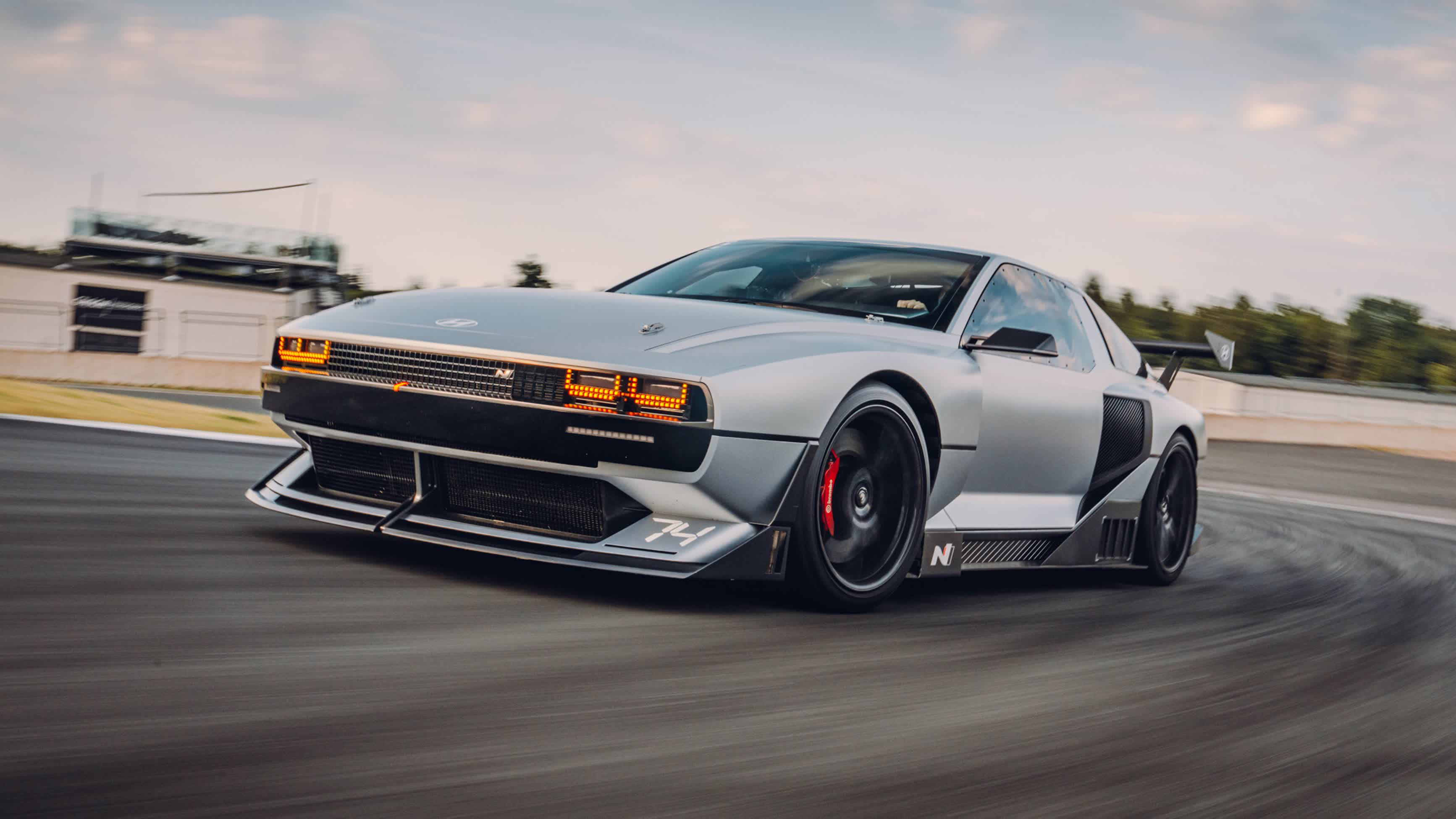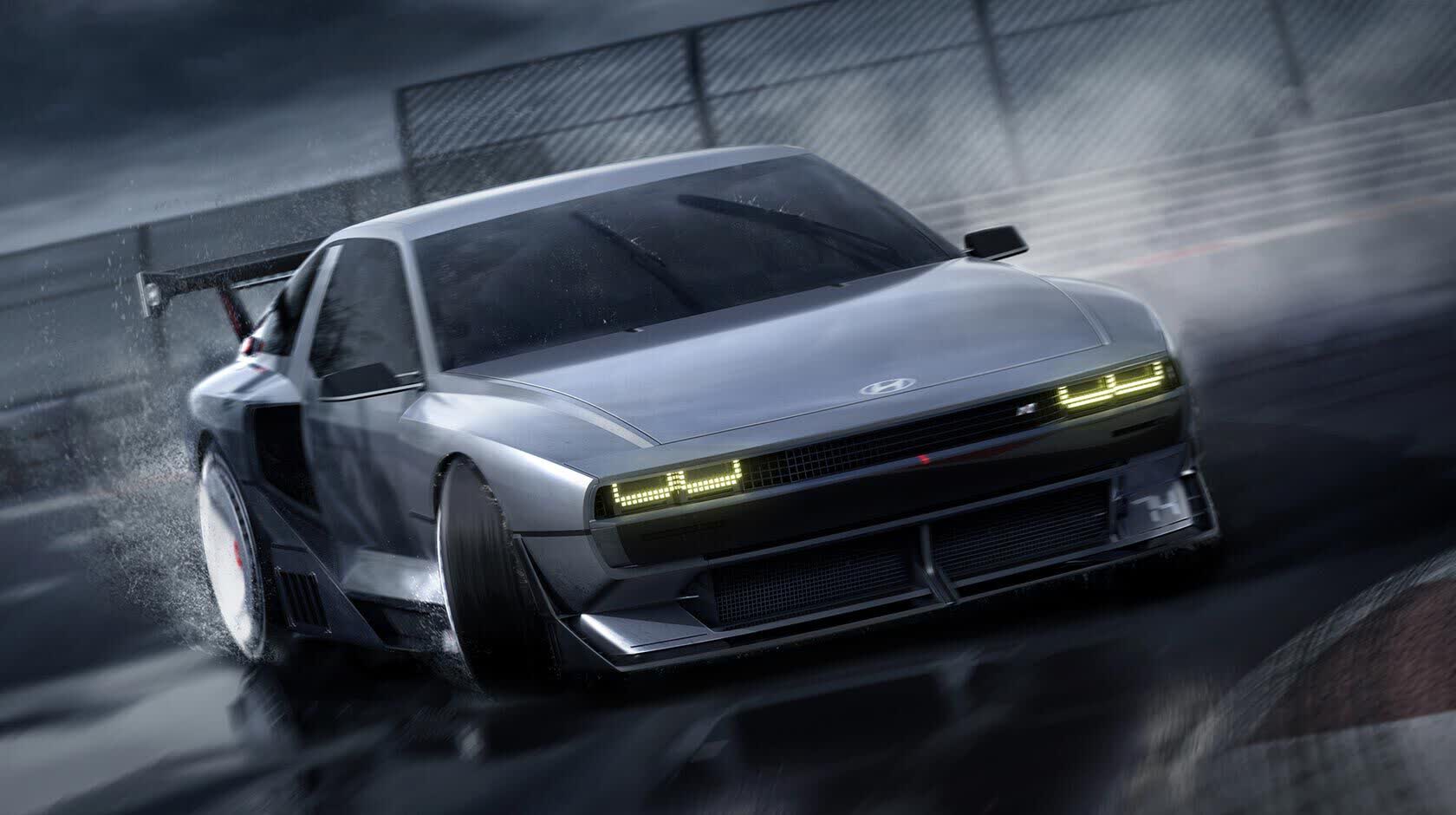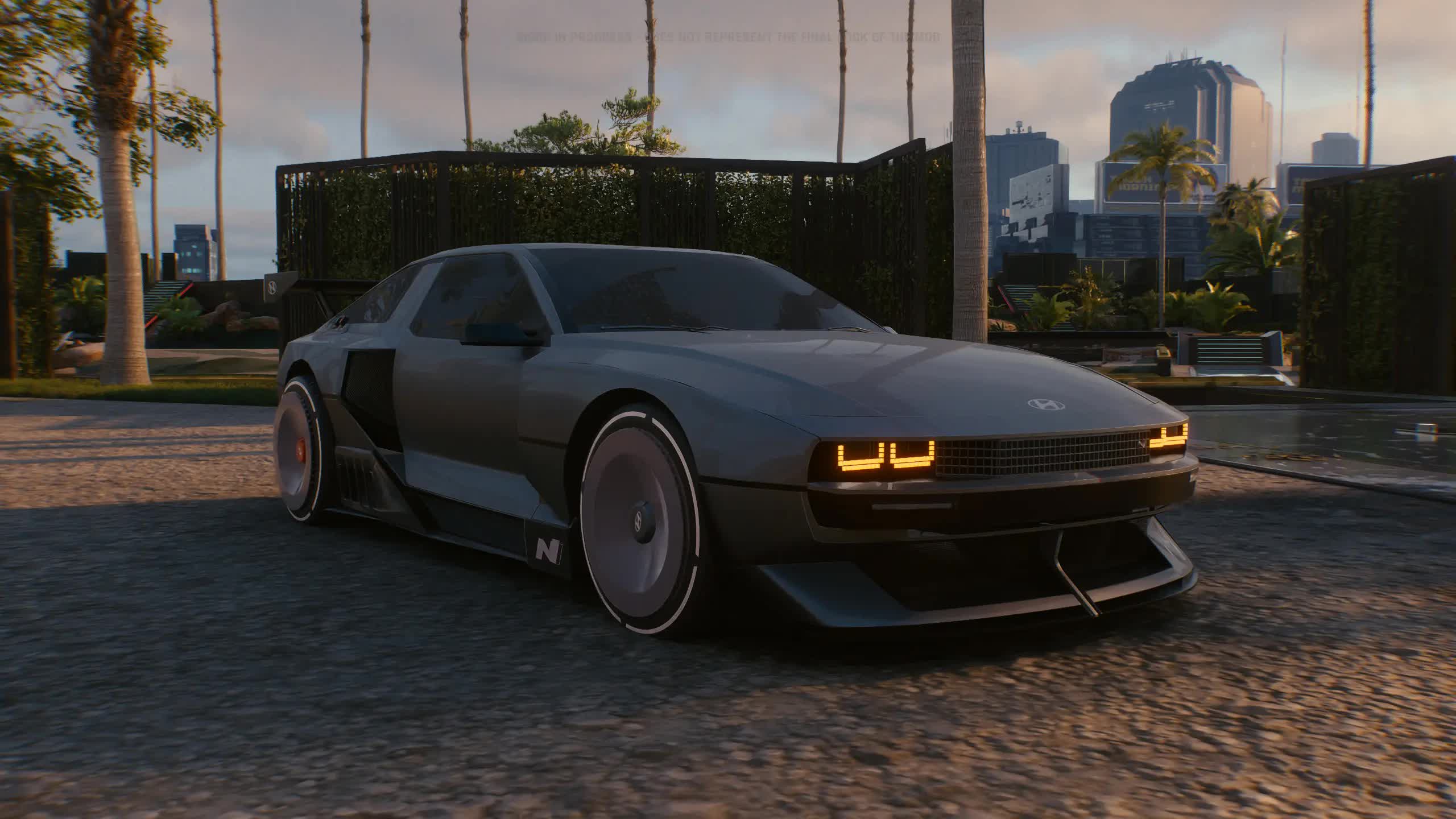Posts: 397 +5
What just happened? Hyundai has essentially confirmed that the N Vision 74 concept is headed for production. The news slipped out during the company's 2024 CEO Investor Day presentation outlining its roadmap for expanding hybrid offerings, mobility solutions, and Genesis models. But buried in a slide detailing 21 upcoming Hyundai EVs by 2030 was a clear shoutout to the stunning N Vision 74.

No official statements were made about the vehicle, but the slide mentioned it specifically under future "high-performance EVs." Reading between the lines, something derived from that wildly popular concept seems likely to hit roads in the next few years. But then again, it's best to take the news with a pinch of salt since the presentation barely gave out any further details.
For now, we can only speculate on what a production version might look like performance-wise. The original concept rocked a monstrous 671 horsepower from a hydrogen fuel cell and dual electric motors. But with limited infrastructure for hydrogen cars, the smart money is on Hyundai ditching that setup for a more conventional electric powertrain.

A report by ETNews from December claimed Hyundai could make an ultra-limited run of just 100 production N Vision 74s, with 70 being road-legal and 30 prepped for racing. If that pans out, they might be able to get away with keeping the hydrogen tech without too much hassle. The report also pointed to an 800 hp rating from the production car's hydrogen/electric hybrid system.
Regardless of the final output numbers, all signs point toward this thing being a certified speed demon whenever it arrives.
Another report by The Korean Car Blog citing inside sources said R&D is already underway at Hyundai's Namyang tech center, with a potential 2026 production start date circled.
As for other details about the original concept, it used a heavily modified Kia Stinger platform, packing a 62.4 kWh battery and an 85 kW hydrogen fuel cell powering a pair of 335 hp motors at the rear wheels. Apparently, Hyundai's mainstream E-GMP EV platform wasn't a fit for the low-slung, performance-oriented proportions they were chasing.

Hyundai has been obsessed with 80s-style designs in recent years. The N Vision 74 concept was first unveiled at Hyundai's N Day 2022 event. Its looks went viral for the resemblance to Back to the Future's iconic DeLorean DMC-12 and because of the recent surge in interest in retro-futuristic designs, likely due to the massive popularity of Cyberpunk 2077. In fact, the car can be driven on the streets of Night City with a mod.
Another retro model widely talked about for similar reasons was the arguably even cooler-looking Hyundai Heritage Series Grandeur, which was revived as a concept by the company in 2021 with an all-electric powertrain. Here's hoping that goes into production, too.
Hyundai's striking cyberpunk concept car may soon enter production